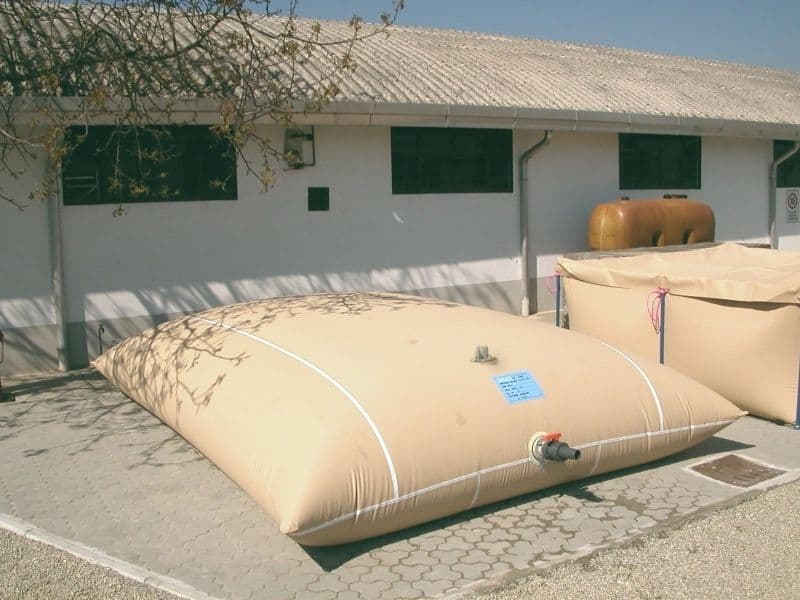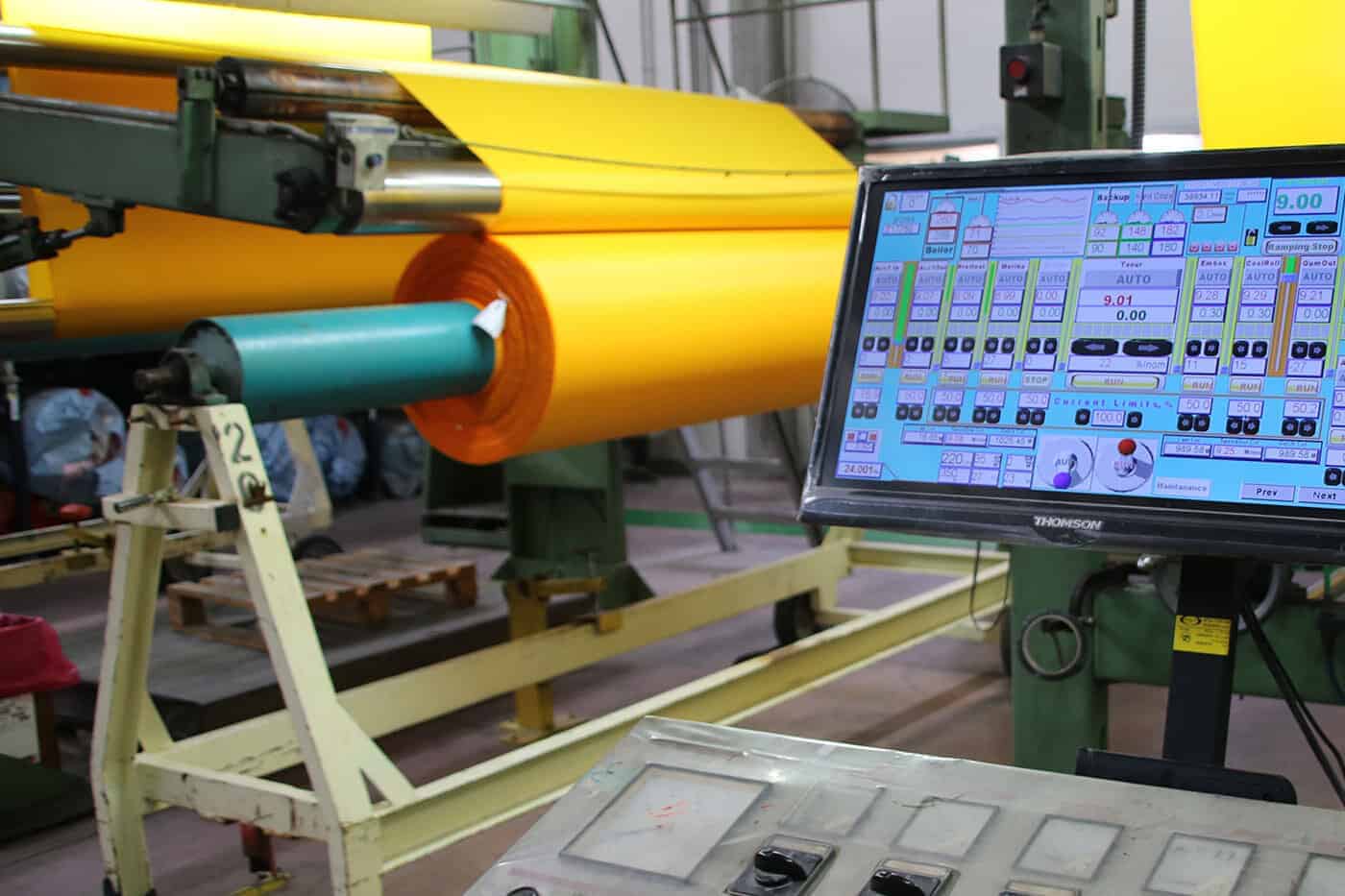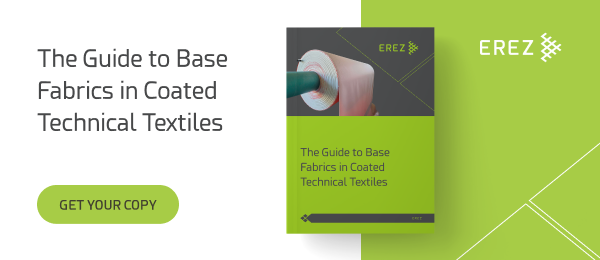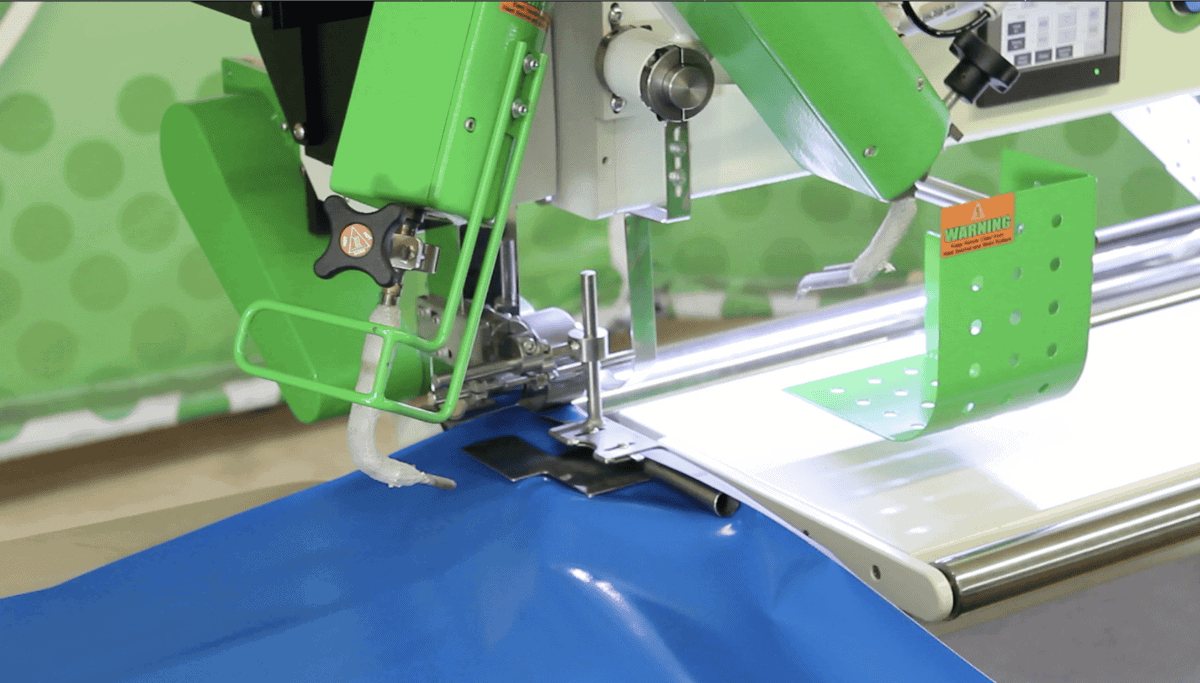Harnessing the Power of TPU 3007 AC for Safe Liquid Food Storage
Coating, Company News, Flexible Storage Tanks, International Standards, Sustainability, coated textile sourcingSep 21, 2024
When it comes to flexible tanks storing aquatic foodstuff, it is of the utmost importance that the materials used in these tanks have passed all the necessary exams and tests to ensure that they withstand international regulatory requirements. One of our products designed for safe liquid food storage and contact with food products is the highly resilient TPU 3007 AC.
TPU 3007 AC, one of our most advanced TPU/PVC Alloy solutions, is an advanced fabric material made at the Erez Technical Textiles factory. It is part of the Rezcoat ™ product family, a line of Erez fabrics made by blending polymers, resulting in the creation of a uniquely strong thermoplastic polyurethane (TPU) coating, which can then be applied to several applications. TPU 3007 AC’s main feature and benefit is enhancing safety and reliability in applications such as collapsbale food and beverage storage tanks.
In most use cases, these storage units hold aquatic foodstuffs for the food and beverage industry. In the food industry, it is sometimes needed to store liquids temporarily while continuing to produce new produce. For example, a wine vineyard has cropped too many grapes and turned a lot of them into wine. They now need a temporary solution to hold liquids until they have room for them in the regular production line so that they can become tasty wine.
Is there a difference between fabrics approved for storing drinking water and fabrics for storing food?
In the process of meeting the criteria for certification for storing drinking water – WRAS or NSF, the fabric is exposed to the drinking water. Then, the impact of the fabric on the water is examined.
In this manner, the manufacturer can check if the fabric causes side effects, changes the taste of the water, or forms bacteria by testing the water.
Regarding food, similar things are checked—how the fabric affects the material of the food. However, unlike drinking water, when we test fabrics meant to hold liquids used for cooking—food, wine, cooking oils, beverages, aquatic foodstuffs—the process checks how the food also affects the fabric and vice versa.
An improper fabric will ruin the food, and unsuitable food will damage the fabric. Or an insufficiently good fabric will deteriorate in contact with food. Wine is a good example. It contains components that harm the integrity of the fabric, and with some liquids, damage can be caused in short periods of time.
Understanding the Innovation of TPU 3007 AC from Erez
- TPU 3007 AC, developed by Erez, is a unique blend of Aliphatic Polyurethane (PU) and Polyvinyl Chloride (PVC) alloy. This innovative blend significantly enhances chemical and abrasion resistance compared to traditional material alternatives.
- TPU 3007 AC is compliant for aquatic foodstuff contact, making it an optimal choice for diverse food and beverage applications.
- TPU 3007 AC contains no dangerous ingredients according to REACH Compliance (EC) No 1907/2006.
- It has been approved by the EU directive for contact with foodstuffs and SI 5113 and complies with the FDA’s Title 21 code of federal regulations.
For TPU 3007 AC Data Sheet – click here
Is TPU/ PVC Alloy Safe For Liquid Food Storage?
Not all TPU or PVC materials are food-safe. While many TPU variations exist, Erez’s TPU 3007 AC stands out regarding food safety. It is not only certified by the main regulatory bodies in the US and EU but also stands out as the fabric is antibacterial, mold-resistant, and wear-resistant. These properties ensure hygiene and safety for food-friendly applications. Preventing the possibility of food or water becoming of poor quality – while keeping safety standards to a max.
TPU 3007 AC does not utilize a liquid plasticizer; instead, it uses a polymer. This change causes the polymer to stick to the fabric and not decompose, causing it to migrate to its surface. The result is better durability, wear, and chemical resistance, allowing it to maintain integrity even when it comes into contact with challenging substances like wine.
Often, PVC is associated with non-green products due to certain environmental concerns. However, a different perspective to consider revolves around the longevity and durability that PVC can offer, features that contribute to sustainability. When PVC is blended with Polyurethane to form a unique alloy like TPU 3007 AC, the result is a highly resilient material with superior chemical and abrasion resistance. This robustness means that products made from this material have a longer life span, thereby reducing waste and the need for frequent replacements. By ensuring safety, hygiene, and durability in food storage, PVC, in this context, demonstrates how its long-term use can lead to more sustainable outcomes.
Comparative Analysis: TPU 3007 AC versus Traditional Materials
Compared to traditional materials used for liquid food storage applications, TPU 3007 AC presents distinct advantages, including weldability, and can be applied to applications using all standard welding methods in the industry.
TPU3007 AC’s robust physical properties and compliance with FDA and EU directive requirements make it a preferred material for these applications.
Applications and Regulatory Approvals for Erez’s TPU 3007 AC
TPU 3007 AC is used in flexitanks for storing aquatic-based, and vegetable oil-based foodstuff, wines, and more. Besides its FDA approval for contact with foodstuff, the material also complies with the EU directive governing plastic materials intended to come into contact with food.
Erez’s Commitment to Innovation and Compliance
Erez Technical Textiles remains dedicated to innovation while ensuring the highest safety standards are met in the materials we develop. We have been helping manufacturers all over the world create the best liquid food storage tanks for more then 20 years now.
Exploring the Potential of TPU 3007 AC For Your Product
Learn how TPU 3007 AC can enhance food and beverage handling and storage solutions. Contact us to learn more about this versatile material from Erez Technical Textiles.
Share this Post





